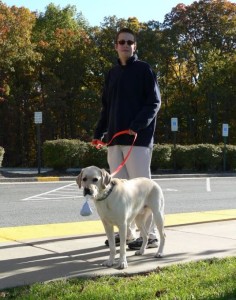 [For the sake of thoroughness, I’ll go ahead and put up a spoiler warning for Lord of the Rings and Harry Potter in front of this post, though I think the statute of limitations on those series has long since expired.]
[For the sake of thoroughness, I’ll go ahead and put up a spoiler warning for Lord of the Rings and Harry Potter in front of this post, though I think the statute of limitations on those series has long since expired.]
Everyone loves a good redemption story. No wait, scratch that. Everyone loves a good fall from grace. Or maybe it’s both?
We’ve already heard Jace talk a bit about why to avoid all good or all bad characters. Giving your heroes flaws and your villains virtues makes them feel both relatable and real. But keep in mind that it’s not enough just to have characters with a little gray in them. Your character has to change with the story. If they end the story in the same mental and emotion place as they started, you aren’t writing a real story, you’re writing a sitcom. An 80’s sitcom.
So static characters are boring, check. Change is good, check. Well-written characters change some by the end of their stories. A protagonist will walk into the fires of conflict and emerge reforged, or some such blacksmithing metaphor. But sometimes readers get bored with a little change. Sometimes you have to go all the way. Think your Jaime Lannisters and your Walter Whites. But how do you do it well?
The rules are surprisingly similar regardless of direction. In fact, they are the same rules as those for any decision a character makes. In order to make a character’s actions believable, you have to plant the seeds at the very beginning of your story. You establish a character by getting the reader inside their head or viewing them from the head of another character. You get across a personality and at least a sketch of a backstory. For every action the character takes, some aspect of their personality and/or backstory combines with an element of the plot and drives them to make a decision that rings true for this fake person you’ve created.
In order to redeem a character or make them fall, you simply turn the stakes up to 11 in such a way that either amplifies their strength of or pries into their flaw. Saruman the White was leader of the White Council until the temptation of the One Ring proved too much for him. The pride that went along with his leadership position convinced him that he could master the ring’s power. Severus Snape, from the viewpoint of the reader at least, went from “he’s definitely bad news” to “he’s a big jerk, but he’s on the right side” gradually over the course of seven books. His redeeming quality, his unrequited love for Lily, burns through all his nastiness and his sympathy with Voldemort’s views and steers him on a path toward redemption.
Other choices can help lend credibility to your character’s journey into extremity. For a character to fall, it helps if they are stubborn and unbending to a fault. They can’t take all moral compromise they see around them, and eventually it becomes too much to bear. They snap, like the tree that doesn’t bend with the wind. In contrast, for a character to be redeemed, the opposite is helpful. If there is a part of them that is uncomfortable with their evil status quo, it provides a seed that can grow into a desire to repent for their crimes.
Handled deftly, this technique can open a reader’s mind in ways that lesser character growth can’t. A villain readers once despised can transform into someone they root for. Or a hero they loved can fall gradually into darkness, bringing readers along in complicity until they realize, with perfectly elicited horror, just how far the character has fallen. If you pull it off, it packs a very special kind of punch.
One last bit of advice. If you turn your main hero bad or your main villain good, make sure you have an understudy character you’ve developed over the course of the story available to fill the now-vacant spot. It helps if they wind up being an even better hero or villain than the character they are replacing. As a bonus, the fresh conflict introduced as former allies turn on one another can add a kick to your story’s climax.


